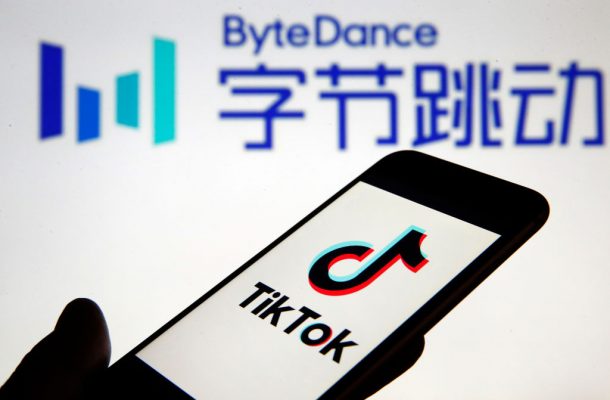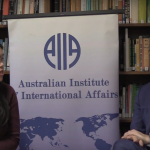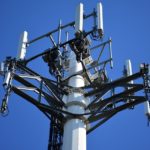The rise and fall of TikTok

Chinese video-sharing app TikTok is facing an existential crisis. By its own estimation, its parent company, Beijing-based ByteDance, is set to lose US$6 billion after being kicked out of India. A decision on a ban in the United States, telegraphed for days by multiple US officials, is set to come ‘in weeks, not months’, according to White House Chief of Staff Mark Meadows.
With its back to the wall, the company is throwing everything it can at staving off further bans around the world—including in Australia, where last week even just one call for the app to be banned, first anonymously in the News Corp tabloids and then publicly by National Party MP George Christensen, caused a media frenzy. When asked about the app today, Prime Minister Scott Morrison said the federal government was taking a ‘good look at it’ and that if the app presents a security risk ‘we won’t be shy’ about taking action.
In response, the company has launched a large-scale media campaign to try to convince the public that they have nothing to fear from its links to the People’s Republic of China. In the US, the company has hired an army of over 35 lobbyists—including, the New York Times notes, ‘one with deep ties to President Trump’—who have already conducted more than 50 meetings with congressional staff and lawmakers.
Here in Australia, TikTok has enlisted the help of Thrive PR—a communications agency that touts its expertise in helping Chinese brands enter the Australian market—to produce slick made-for-TV interviews of the company’s executives reeling off expertly drilled talking points. A PR offensive is set to run for several weeks with ads in print, digital outdoor and video platforms across the country.
The campaign’s slogan—‘Don’t make TikTok a political football’—is a shot across the bow at any skittish MPs who are weighing up whether a TikTok ban will pass the pub test. ‘Millions of people have made TikTok one of Australia’s most loved apps’ the print ad emphasises. (Translation: Woe betide any politician who pushes for a TikTok ban. It’s a vote loser.)
That blunt warning was splashed across various Australian newspapers this week in full-page ads and, if that wasn’t obvious enough, was accompanied by a letter drop to every single federal MP from TikTok Australia General Manager Lee Hunter that sought to ‘correct the record regarding a number of false claims that have been made about TikTok over recent weeks’.
‘Contrary to some claims, it is critical you understand that we are independent, and not aligned with any government, political party or ideology’, Hunter informed MPs in his letter. ‘TikTok is a privately owned company interested in helping our users make and share creative and fun videos.’
That may be what Australia’s TikTok executives genuinely believe, but it’s certainly not what their boss ByteDance CEO Zhang Yiming thinks. In 2018, the company faced a different existential crisis. With the flick of a pen, the party-state suspended Jinri Toutiao, the company’s news aggregator, and shut down Neihuan Duanzi, a popular app for sharing short videos, GIFs and jokes, making it abundantly clear to the company who ultimately calls the shots with its business.
In response, Zhang published an open letter in which he apologised for failing to respect the Chinese Communist Party’s ‘socialist core values’ and for ‘deviating from public opinion guidance’—one of the CCP’s terms for censorship and propaganda.
‘All along, we have placed excessive emphasis on the role of technology’, Zhang wrote, ‘and we have not acknowledged that technology must be led by the socialist core value system, broadcasting positive energy, suiting the demands of the era, and respecting common convention.’
The apology could not have been more abject and its message more clear: we know that we can’t simply be a commercial operation; we know we have to work in concert with the goals of the party. Or, in Australian sporting parlance: when the CCP lobs a political football at you, you have no choice but to run with it.
Whether TikTok Australia’s executives know it or not, that sword of Damocles remains dangled over the heads of their bosses in Beijing, giving the CCP more leverage than it could possibly ever need over the highest valued tech start-up on the planet. It’s what drove the company at the time to boost its army of censors by an extra 4,000 people (candidates with party loyalty were preferred) and it’s what continues to motivate ByteDance to conduct ‘party-building’ exercises inside the company.
Far from being ‘independent, and not aligned with any government, political party or ideology’, TikTok’s parent company ByteDance literally has an internal communist party committee as part of its governance structure. ByteDance employees regularly get together to study Xi’s speeches and pledge loyalty to the party.
You don’t have to read Chinese to realise any of this. Just take a look at this single photograph. Yes, that’s the company logo in the bottom right-hand corner of the PowerPoint presentation, and yes, that’s a flag with the hammer and sickle on it hung up in the corner of the room. We’re not in Silicon Valley anymore, folks.
It is this very particular context that TikTok comes from and that it remains inextricably entangled with. It’s also where TikTok user data is being sent. By TikTok’s own admission, the company is still sending data back to Beijing. In an April blog post, Chief Information Security Officer Roland Cloutier conceded that it is the company’s ‘goal’ to ‘minimize’ access to TikTok user data by employees in the PRC. That’s hardly watertight.
It’s at this point that critics of companies like ByteDance point to the suite of national security laws that give the party-state extraordinary powers to compel anyone to hand over any data it desires. It’s an important point, but ultimately a moot one. In the PRC, the law is whatever the CCP decides it is.
They’re not exactly subtle about it either. The CCP leads everything in Chinese society, says Xi: ‘Government, the military, society and schools, north, south, east and west—the party leads them all.’ Chinese citizens, he says, are like ‘stars revolving around the revered moon’ of the CCP.
As Beijing’s power grows, the rest of the world is starting to look more like obstinate stars that are stubbornly refusing to orbit the revered moon of the CCP. One only has to look at how Beijing reacted when Daryl Morey, the general manager of the Houston Rockets basketball team, dared to post his own opinion on an app that’s blocked in the PRC to understand how seriously the CCP takes shaping the narrative outside its borders on issues it considers matters of national security.
TikTok Australia’s ‘big goal’, according to its general manager, ‘is to truly embed TikTok at the heart of Australian culture’. Once it’s fully embedded, does he really believe the CCP won’t be tempted to use that conduit to its own advantage?
This article was published by The Strategist.
Fergus Ryan is an analyst at ASPI’s International Cyber Policy Centre. He has worked in media and marketing roles in China and Australia for close to a decade and has published widely on Chinese technology, entertainment and media industries.











